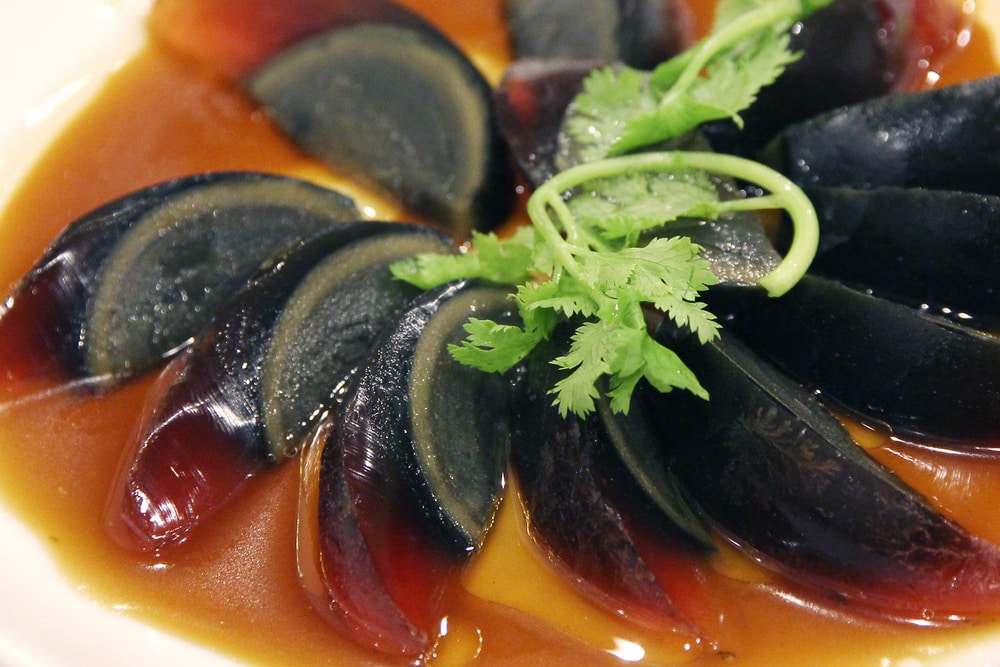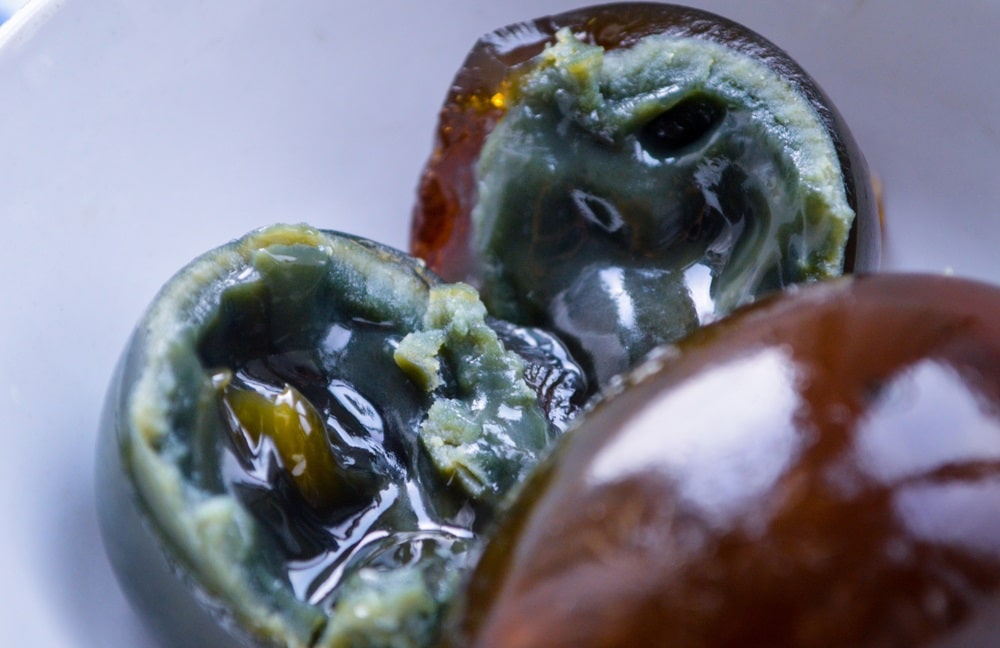
Our non-Asian readers may be wondering what on earth a century egg is. Is it a hundred-year-old egg? Not quite!
These Chinese delicacies go by many names and are also known as preserved eggs, millennium eggs, or black eggs, to name a few.
The dish originated in China, where they preserve chicken, duck, or even quail eggs in a mixture of salt, ash, quicklime, and other ingredients. The process, despite the name, takes just a few weeks or months.
When done, the eggs are a dark color. The yolk changes to dark green or grey and takes on a creamy, soapy taste while the white becomes a dark brown salty jelly. The cured eggs have a unique flavor prized by many.
For those in the West who are unfamiliar with such foods, it may be difficult to tell whether the egg has gone bad or not. Today, our article will tell you how to know if your century egg is okay to eat.
How to Tell if a Century Egg Has Gone Bad
Even though century eggs can last for an exceptionally long time in the pantry, it is always better to be sure whether or not it is safe to use them in the recipe.
Luckily, it is not that hard to determine whether or not it is safe to use century eggs in your recipe. All you need to do is follow a few basic steps, and you’ll have a clear understanding of the viability of these eggs.
So, make sure to follow the method mentioned here if you’re not sure how to tell if a century egg has gone bad.
To check the freshness of the century eggs, you just need a large bowl of cold tap water. Now, simply drop the century eggs into the water bowl.
If the eggs sink to the bottom of the bowl, they are not bad and are safe to eat. However, if the eggs float, discard them as they have gone bad.
How to Use Century Eggs
Now that you have determined that your century eggs are fresh, you may be needing a few ideas on how to use them. First, remove the aged eggs from their container and drop them into boiling water for a minute.
Next, drain them and plunge them into iced water. This procedure loosens the shells and makes the eggs easier to peel.
Tap the eggs on a hard surface to crack the shell as you would for a hard-boiled egg. Peel the egg and discard the shell. Rinse the egg under cold water.
You can now eat the eggs – there is no need to cook them. We recommend serving them quartered with pickled ginger, soy sauce, or a little sesame oil.
If you don’t want to eat the whole egg, you can use it chopped as a topping for tofu or a salad with an Asian dressing over the top.
To Conclude
It is quite rare for century eggs to go bad even after a few months of sitting in the pantry. While it is always good to check, these eggs don’t go off very often.
